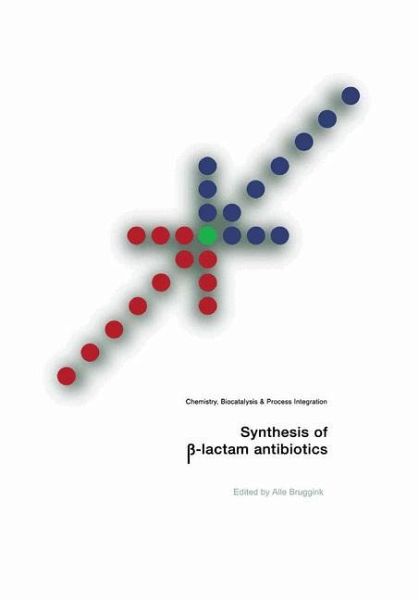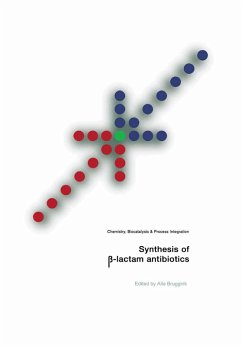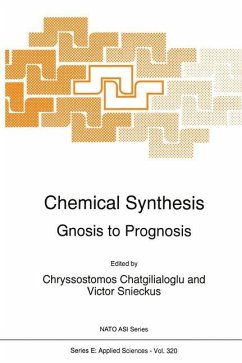
Synthesis of ¿-Lactam Antibiotics
Chemistry, Biocatalysis & Process Integration
Herausgegeben: Bruggink, Alle

PAYBACK Punkte
58 °P sammeln!
Penicillins and cephalosporins have a long history in combating bacterial infections. Despite new infectious diseases and occurring resistance, beta-lactam antibiotics will for many years to come continue to play a prominent role in our therapeutic arsenal. This book covers the industrial development of the chemical and biochemical processes used to manufacture these products, as well as looking ahead to possible future processes. The interplay between synthetic organic chemistry with the understanding and application of enzymes, modeling of fermentation processes and integration through (bio-...
Penicillins and cephalosporins have a long history in combating bacterial infections. Despite new infectious diseases and occurring resistance, beta-lactam antibiotics will for many years to come continue to play a prominent role in our therapeutic arsenal. This book covers the industrial development of the chemical and biochemical processes used to manufacture these products, as well as looking ahead to possible future processes. The interplay between synthetic organic chemistry with the understanding and application of enzymes, modeling of fermentation processes and integration through (bio-) chemical process engineering is illustrated. In-depth scientific approaches to biocatalysis and biocatalyst development including enzyme kinetics, enzyme crystal studies and semi-rational enzyme mutations are also presented. Metabolic pathway analysis and modeling of fermentation process are treated as well as molecular precision in synthetic approaches to beta-lactams, theirprecursors and derivatives. Process technology studies including new reactor concepts, possible short-cut routes and improved down-stream-processing methods complete a broad view on the scope and limitations of the presently developed industrial processes including an intriguing insight into future process possibilities. This book represents an excellent case study on the transformation of traditional, stoïchiometric, organic synthesis and classical fermentations into modern (bio-) catalysis and biosynthesis based on insights in metabolic pathways and enzyme actions.














